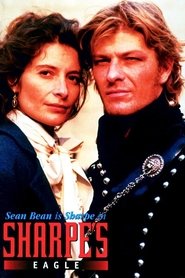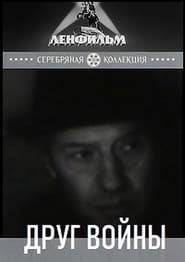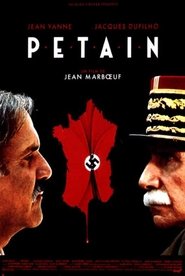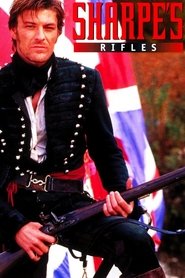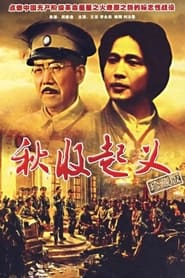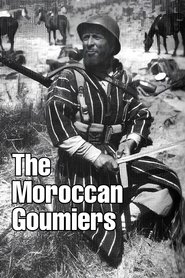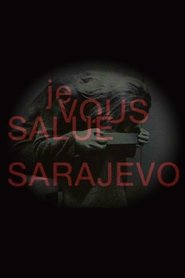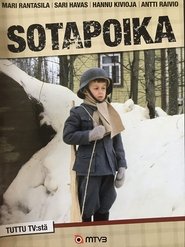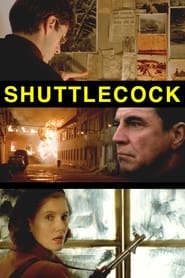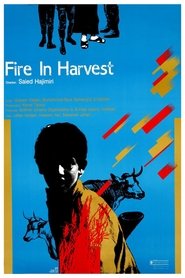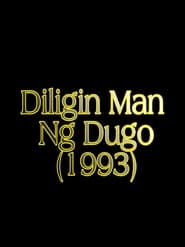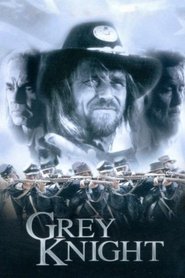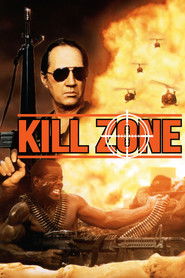New War Movies on Pantaflix - Page 280
-
Salween
1993
Salween
1993
star 6.2The border of Burma and Thailand is lawless place, where people live and die by the law of the gun. Into this situation comes a young police lieutenant, intent on reforming the rough and rowdy local police force along the Salween River. -
Hot Shots! Part Deux
1993
Hot Shots! Part Deux
1993
star 6.5Topper Harley is found to be working as an odd-job-man in a monastery. The CIA want him to lead a rescue mission into Iraq, to rescue the last rescue team, who went in to rescue the last rescue team—who went in to rescue hostages left behind after Desert Storm. -
Sharpe's Eagle
1993
Sharpe's Eagle
1993
star 7.1Sharpe is a Captain saddled with the South Essex, a battalion run by incompetents and filled with soldiers who have never been in battle. When the South Essex loses its colours (its regimental flag), Sharpe vows to save the honor of the regiment by capturing a French Imperial standard: an eagle. -
War: We Are All Neighbours
1993
In a Muslim/Catholic village near Sarajevo, rumors fly and suspicions spread. When Catholic Croats assert control, Muslim businesses are attacked, villagers arrested and harassed, and homes threatened. -
Friend of War
1993
Friend of War
1993
star 1The film is set during World War II in a German-occupied European country. In a covered truck on a snow-covered road, the Germans are transporting a group of civilians. Thoughts of imminent death inevitably visit the passengers of the van. The Catholic priest accompanying the arrested, among whom there is a boy, prepares the companions to leave for another world. A complex psychological conflict arises between the priest and the boy. Circumstances develop in such a way that the boy manages to escape. -
Pétain
1993
Pétain
1993
star 6During second world war,Philippe Pétain gets absolute powers.The war ends with the arrival of allied forces by Petainism has not been put on trial. -
Sharpe's Rifles
1993
Sharpe's Rifles
1993
star 6.7During the Peninsular War in Spain against the French, Sergeant Richard Sharpe saves the life of Arthur Wellesley, the future Duke of Wellington and is promoted to Lieutenant. In order to pay the troops Wellesley needs a money draft from the banker Rothschild, but fears he has been captured by the French and sends Sharpe behind enemy lines to find him. Sharpe is given command of a platoon of crack riflemen, led by the surly Irishman Harper and including Hagman and Harris, who resent Sharpe as not being a 'proper officer'. -
Map of the Human Heart
1993
star 6.2In an Arctic village in 1931, British mapmaker Walter Russell selects 12-year-old Eskimo Avik as his guide. When the boy contracts tuberculosis, Walter flies him to a Montreal hospital, where Avik meets Albertine and is infatuated. A decade later, a grown Avik encounters Albertine again in London, where he's serving as a British combat pilot. Despite her relationship with Walter, she and Avik begin an affair. -
Les goumiers marocains
1993
This film recounts through archival documents and eyewitness accounts, the history of "The Moroccan Goumiers" during the two world wars and the Indo-china war. A story that starts from the beginning of the French protectorate in Morocco. -
Hail, Sarajevo
1993
Hail, Sarajevo
1993
star 6.8A short two-minute rumination on the once volatile situation during the period of the Bosnian War presented in the form of a photo-montage with accompanying text. -
Wiatraki z Ranley
1993
Wiatraki z Ranley
1993
During World War II, a Polish correspondent goes to South Scotland, where he learns about the history of a Polish pilot. -
Sotapoika
1993
Sotapoika
1993
During the Continuation War, mother Kaarina and son Erkki live at home in a small town while father has been sent to the front. One day the family's life is turned upside down when the father returns home as a deserter from the front . -
Shuttlecock
1993
Shuttlecock
1993
star 2Major James Prentis VC is a British spy of World War II and war hero who goes under the code name of "Shuttlecock". Alienated from his family and children, he ends up in a mental institution in Lisbon, Portugal. -
Fire in the Harvest
1993
Fire in the Harvest
1993
At the first days of the Iran-Iraq war, Taleb, the lord of the Malekieh village, helps the Iraqi army to enter the village. Rahman, a twelve-year old teenage who is a shepherd working for Taleb, is the only one allowed to commute in the area. Jaseb, Rahman's friend, who is recently finished his military service escapes from the village and has to kill an Iraqi soldier. He is also injured and hides in a barn. Rahman finds out about him and tries to help him ... -
Diligin Man Ng Dugo
1993
Diligin Man Ng Dugo
1993
Anthony Alonzo is an idealistic army captain who believes in the government’s reform programs for the people of Mindanao. -
Sangokushi: The Yangtze Is Burning!
1993
star 6.3Covering roughly 13 years, from Cao Cao's victory over Lu Bu in 198 CE, through the Battle of Red Cliffs in 208 CE, and the aftermath up until 211 BCE. As other players are swept from the board, the story focuses on Liu Bei and his increasingly desperate attempts to prevent Cao Cao from seizing all of China. The turning point is Liu Bei's recruitment of the best strategic mind of that generation, Zhuge Kongming, the Crouching Dragon. -
Grey Knight
1993
Grey Knight
1993
star 4.7During the Civil War, Confederate soldiers accidentally free an evil voodoo entity brought back by slave traders. The entity possesses the dead bodies of both Union and Confederate soldiers creating an army of its own bent on conquest. -
Lifeline to Victory
1993
Lifeline to Victory
1993
Paul Devereaux is a second officer with lots of experience with merchant ships. But this is World War II and the Royal Canadian Navy desperately needs experienced officers. Paul is thus given command of his own ship. However, in early 1940's, Canadian Navy does not have the biggest budget nor the most qualified enlisted men. Paul's ship must escort merchant ship to Europe and back and take part in the longest naval battle in history. -
Kill Zone
1993
Kill Zone
1993
star 1.2An American colonel will pay any price to defeat the Viet Cong. When his unauthorized fighting force in Cambodia is discovered, he becomes a one man army, fighting a war of his own for a cause he knows is just.
 Netflix
Netflix
 Amazon Prime Video
Amazon Prime Video
 Apple iTunes
Apple iTunes
 Apple TV Plus
Apple TV Plus
 Disney Plus
Disney Plus
 Google Play Movies
Google Play Movies
 Paramount Plus
Paramount Plus
 Hulu
Hulu
 HBO Max
HBO Max
 YouTube
YouTube
 fuboTV
fuboTV
 Peacock
Peacock
 Peacock Premium
Peacock Premium
 Amazon Video
Amazon Video
 The Roku Channel
The Roku Channel
 AMC+
AMC+
 Kocowa
Kocowa
 Hoopla
Hoopla
 The CW
The CW
 Vudu
Vudu
 Starz
Starz
 Showtime
Showtime
 PBS
PBS
 Pantaflix
Pantaflix
 FXNow
FXNow
 Tubi TV
Tubi TV
 Kanopy
Kanopy
 Comedy Central
Comedy Central
 Crunchyroll
Crunchyroll
 Microsoft Store
Microsoft Store
 Redbox
Redbox
 Sun Nxt
Sun Nxt
 ABC
ABC
 DIRECTV
DIRECTV
 Crackle
Crackle
 Fandor
Fandor
 Plex
Plex


